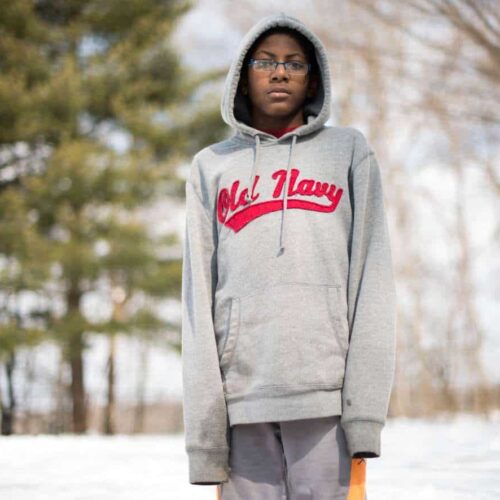Introduction
Virginia Gov. Terry McAuliffe has asked members of his cabinet to recommend policy changes in response to a Center for Public Integrity report showing that schools in the commonwealth refer students to police and courts more often than other states.
“They’re going to look into it, and make recommendations and he will act on it,” Brian Coy, McAuliffe’s spokesman told the Center. “Virginia parents send their children to school to learn, not to end up in the juvenile-justice system.”
Coy said that the officials tasked with researching the “root cause” of referrals include Secretary of Education Anne Holton, Secretary of Health and Human Resources Bill Hazel and Secretary of Public Safety Brian Moran. The cabinet members are part of a “children’s cabinet” that McAuliffe formed last year to “take a 360-degree look at how to make Virginia the best place to raise children,” Coy said.
The governor hasn’t set a deadline for recommendations, Coy also said, but any legislative proposals that emerge would have to be completed by January in order to be considered in the 2016 legislative session.
The Center’s report in April focused in part on Kayleb Moon-Robinson, an autistic 11-year-old from Lynchburg who was charged — among other things — with felony assault on a police officer after a struggle that arose when Kayleb broke a rule. The boy was found guilty of the felony and other charges in his local juvenile court.
On April 28, after the Center report was released, Lynchburg police wrote to Kayleb’s mother, Stacey Doss, informing her that “as a result of concerns cited by you in the media” the department was opening an investigation into her son’s arrest. Doss is considering appealing Kayleb’s conviction. School officials have declined to comment on Kayleb’s case, but issued a statement saying that they feel police have been “unfairly portrayed” and “play an important role” at schools.
Since the story came out — along with a partner piece on the national radio show “Reveal” — other Virginia parents have contacted the Center to complain that their children were also arrested at school or summoned to court based on allegations the parents felt were not real crimes. Coy said cabinet members looking into referrals are “always” open to hearing from the public.
“We’ve seen over and over again the way casual policing of minor misbehavior ruins children’s lives,” said Angela Ciolfi, Charlottesville-based legal director of the Virginia Legal Aid Justice Center’s JustChildren Program. The program has represented children in efforts to obtain special-needs educational services and in discipline hearings.
“We are pleased,” Ciolfi added, “the children’s cabinet is taking an important first step to critically examine how we can better protect children from criminalization.”
Ciolfi and Virginia PTA legislation chair Sarah Gross recently co-wrote an opinion piece in the Richmond Times-Dispatch calling for mandatory specialized training for school police and for memorandums of understanding “that spell out in clear terms” what school resource officers “can and cannot do.” An editorial in Sunday’s Virginian-Pilot newspaper said the state’s “aggressive approach to referring kids to police isn’t a model for changing behavior; it’s a pipeline to jail.”
The Center’s investigation focused on Virginia after analyzing national data and a sampling of local police data showing that most students are sent into Virginia’s juvenile courts for allegations of disruptive behavior or “simple assault” rather than more serious offenses. The national data showed that Virginia referred students to cops or courts, or both, at a rate of about 16 for every 1,000 students during the 2011-12 school year. That was three times the national rate of six per 1,000 students. Eighteen other states also surpassed the national rate.
Special-needs, black and Latino students were disproportionately affected in most states across the country, the 2011-12 data on each state also showed. In Virginia, 30 percent of kids referred to law enforcement from schools were special-needs students, even though they represented only 14 percent of statewide enrollment. About 38 percent of Virginia students referred to cops and courts were African-American, yet black students were only a quarter of enrollment.
Police data from Chesterfield and Henrico counties—both adjacent to the city of Richmond—show that thousands of middle-school students have been accused of misdemeanor disorderly conduct and assault. Complaints were filed in court against children under 10 for making bomb threats. A public defender in eastern Virginia told the Center that some school police pile multiple charges on kids, including resisting arrest and obstruction of justice.
In response to the Center findings, a U.S. Department of Education spokesman said that sanctions that include referrals to law enforcement “[create] the potential for significant, negative educational and long-term outcomes” for children, and that “it is the responsibility of schools to eliminate all discriminatory treatment in disciplinary referrals.”
In Chesterfield County, the local NAACP chapter recently met with police representatives and expressed concerns about school arrests and criminal charges filed disproportionately against black students, said Renee Cooper-Asomaning, first vice president.
“It should be very strict and well documented when police get involved,” she said. “There are officers who are overzealous in their ability to send someone into the criminal-justice system.”
Ali Nelson, a white parent in Henrico County, contacted the Center because in March her 12-year-old autistic son was arrested and charged with felony assault on a police officer at Harry F. Byrd Middle School.
Nelson said she had been in “countless meetings” to share concerns that her son was struggling to adjust to some aspects of middle school. On March 16, Nelson said, the sixth-grade boy walked out into the hall during a moment of stress and tore some posters off a wall. He had been allowed to wander halls at times, but when a school police officer saw the boy tear down posters he blocked his path and the child pushed the officer.
The cop wrestled the boy to the floor, handcuffed him and called three other officers for “back up,” Nelson said.
Nelson said that when she arrived her son was crying, had welts on his arms from the handcuffs and banged his head on a table out of frustration. School staff seemed upset and apologetic, but deferred to police, Nelson said. The officers were sympathetic and one of them shared his story of a special-needs relative, Nelson said.
But they also told her that “we have to do what we are mandated to do,” Nelson said. “The school resource officer said that as soon as he (her son) put his hands on him it was a felony and he had to arrest him,” Nelson said.
“It was definitely all about the protocol,” she said.
Nelson and her husband quickly received a letter telling them that the school principal was recommending that her son be expelled from the district for striking a police officer—unless staff agreed after a March 26 review that the boy’s behavior toward the officer stemmed from his disability.
Then the Nelsons received a March 18 letter from the Henrico Juvenile Court that they found “intimidating.”
“There is substantial evidence to suggest that your child committed the crime as stated above,” the letter said, referring to the alleged felony assault on a law enforcement officer. “At this time, our agency would like to offer your child the opportunity to have this case diverted from court. In doing so, your child would need to admit his guilt of the crime and accept the diversion contract that our agency has to offer.”
The letter warned that “if you feel that your child is innocent in this matter, the diversion program will not be available.”
Nelson said she felt forced to choose diversion—even though the school review subsequently found that her son’s altercation with the officer was a “manifestation” of his disability.
In early April, the boy met with the court intake officer. The officer was kind, Nelson said, but “she let him know if he did something like that again, she would probably not be able to let him go home and he’d have to be in jail.”
The Henrico County School District declined to comment on Nelson’s son’s arrest.
“Student privacy laws prohibit us from making a contribution to the story,” schools spokesman Andy Jenks said. “We’re certainly aware of the difficult decisions that must be made to ensure the safety of our schools, and we have the utmost confidence in our law enforcement partners.”
Nelson said that when she read about what happened to Kayleb Moon-Robinson, who is black, she asked herself if her son had benefited from lighter treatment once he was arrested.
“I asked myself,” she said, “Could it be because of his race? I don’t know. Could it be because these officers were more familiar with special-needs kids?”
But, Nelson said, she believes her son never should have been arrested in the first place. “Why did my child even have to be taken down by four cops, and handcuffed? How many more parents are out there who aren’t speaking out about this?”
Read more in Education
Criminalizing Kids
When schools call police on kids
Schools refer tens of thousands of students to law enforcement every year. Black children and students with disabilities get the brunt of it.
Criminalizing Kids
Our reports show why school police are under fire after Floyd protests
Districts removing cops or considering it after Black Lives Matter marches



Join the conversation
Show Comments